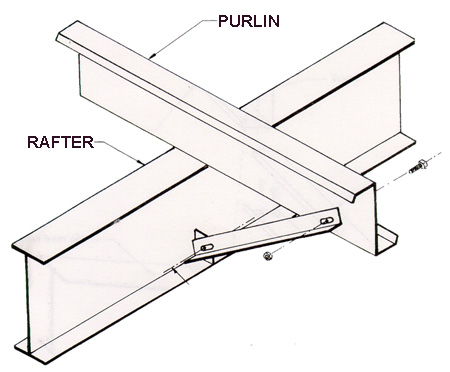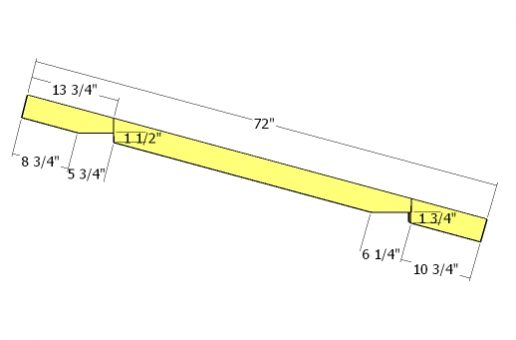
1) The centre of the peak must be supported by one of two things:.If the slope of a roof is 1:3 (4:12 pitch), then two key elements come into play. Rafter construction Rafters for roofs with a slope 1:3 or less Must be at no more than a 45-degree angle (from horizontal) and bear onto a load-bearing element. Usually placed near the outside edge, but can also be used on the interior peak. Note that roofs with an angle of 60 degrees or more are treated as walls for the purpose of the Code– with the exception of the exterior sheathing and roofing material. Slope: In construction, the slope – or angle – of the roof, is measured as a function of the increase in height (rise) over a 12-foot horizontal distance (run). A ridge board is nothing more than a solid element of wood that runs the length of the peak. Ridge board: In some cases, a ridge board may be required.

This is usually only required with slopes of 1:3 (4:12 pitch) or more. Ridge beam: If the roof has a shallow slope, then the load of the roof must be supported at the peak by a beam that runs the length of the peak, and is supported by a system that eventually leads directly to the foundation of the structure, or a similar set of load-bearing elements. Rafter: This is the lumber that runs from the centre (peak) to the supporting wall. The span is NOT the distance between the supporting wall and the peak of the roof measured along the diagonal. Rafter span: this is the distance between the supporting wall and the centre of the roof measured horizontally. (Usually constructed fairly close to the wall - think "Cape Cod" style roofing.) This is often used to reduce the rafter span.ĭwarf wall: a small wall, built with a top and bottom plate (and doubled top plate if the rafters do not land directly over vertical studs) that is built to support rafters partway up the slope. DefinitionsĬollar tie: a section of wood that ties two opposite rafters together. Note that in this drawing, some of the outlined elements may not be necessary they are included purely for explanatory purposes. Illustration of some typical rafter elements. Here then, is some critical information to know about rafters.
#Rafter meaning code
On the other hand, a carpenter or contractor can build a rafter system, and as long as it’s done right, rafter systems can meet the requirements of the National Building Code of Canada. Or, in simpler terms, a carpenter or contractor can build a truss – but it can’t be deemed Code-compliant.


All of the local truss manufacturing companies do this. Here’s the critical difference: in order for a building inspector to certify a truss as Code-compliant, it has to be certified by an engineer as suitable for the snow loads in the area. The two systems have similarities – and differences. Although there are all kinds of styles of roofing styles and subystems (mansard, gambrel, gable, gable dormer, barn dormer), in the end, when it comes to most residential roofs, there are just two kinds of systems: rafters and trusses.


 0 kommentar(er)
0 kommentar(er)
